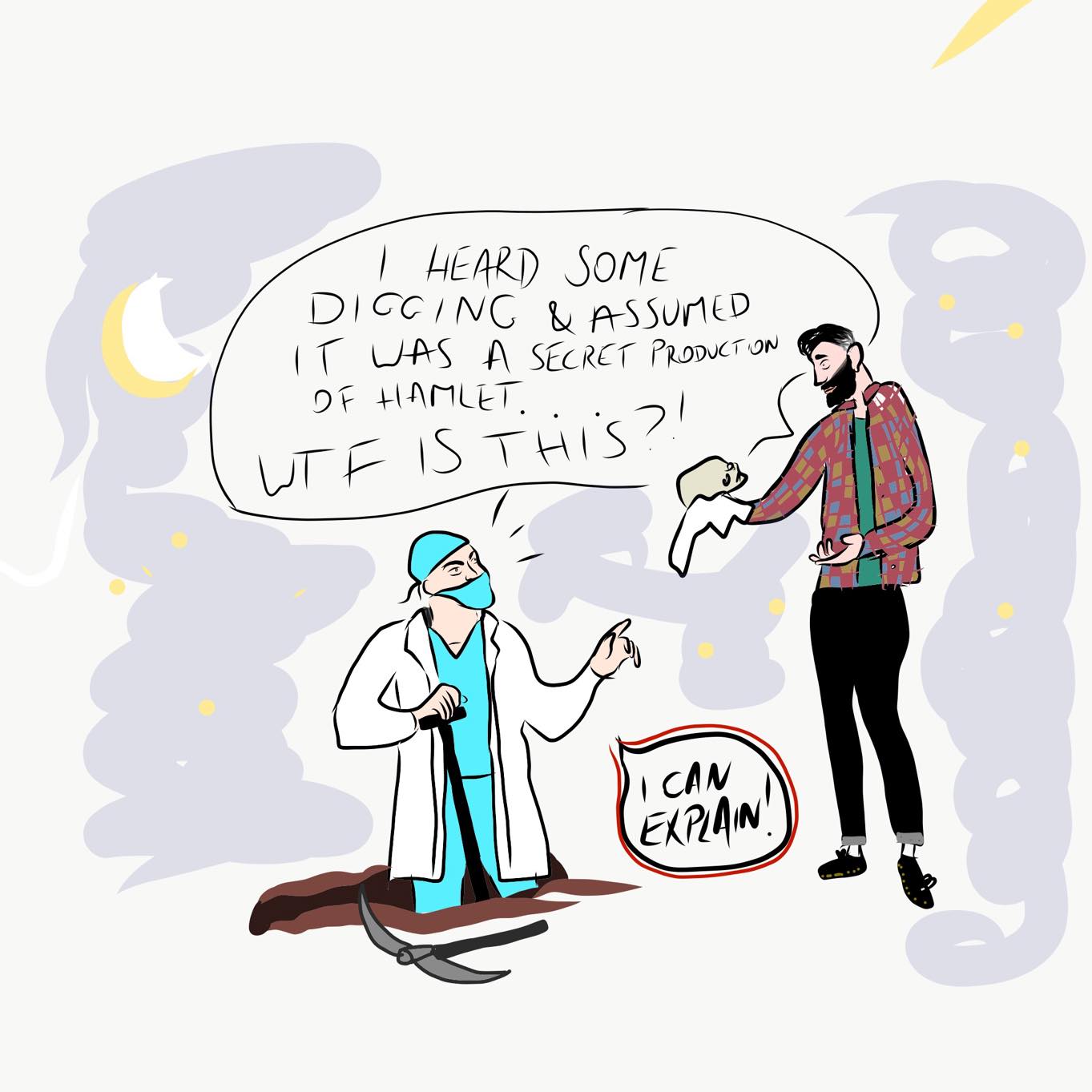Trinity is rife with traditions, mysteries, and legends collected through the centuries. While some are iconic, there are many lesser known tales, ranging from the hidden to the historical.
One tale that goes deep into the depths of Trinity’s history came to the forefront in 1999. As an extension was being built onto the Berkeley, a gruesome discovery was made, bodies were found buried in the earth. It turned out that throughout the 18th century, medicine students had sourced corpses illegally. After use, they were carelessly disposed of within College grounds. The head of the medicine department during this period, Samuel Clossey, allegedly used such corpses for his experiments. There’s also a suspicious tale of how two students mysteriously vanished while he taught there.
After alleged sightings of Professor Clossey’s ghost throughout the years, Trinity has become a key location in Dublin for those interested in the paranormal. Ghosts or not, the campus’ history is quite grisly. In 1734, a lecturer named Edward Ford was murdered in the Rubrics building on campus. A group of students were throwing stones at the windows of the building and in response to this, the lecturer fired a pistol at them to dispel the students. However, they retrieved their firearms and returned to shoot through his window in vengeance. One shot hit and killed Ford, yet apparently they didn’t intend to kill the lecturer. The students were not charged. To this day, Ford’s room remains boarded up and out of use.
Whilst no murders have been recorded in recent times on campus, superstitions still remain – the most notable being that surrounding the Campanile in Front Square. The myth goes that if a student walks through the arch of the bell tower, they will be destined to fail their summer exams. It is a bizarre superstition that caught on at some point in history, and is still followed by students today.
Next to the Campanile sits the statue of George Salmon. A tradition that is still carried out is for female students to take a picture with the statue of the former Provost. He famously declared women would be allowed into College over his “dead body” as they were a danger to education. After his death, the ban was lifted.
The underground tunnels in College are perhaps one of Trinity’s most popular tales amongst students. While they are not a secret, few have been in them as they have been closed off to students. They run underneath Front Square, with a passage connecting the Lecky to the Berkeley. An old underground wine cellar is also rumoured to be located off a tunnel to the Buttery.
Whilst it certainly exists, with a website to prove it, the Knights of the Campanile is something of a legend within College and remains a mystery to most students. The objective of the society is to further the sporting activities of Trinity and with only fifty active student members at one time, the network is elusive and exclusive. However, membership is for life and the society has over 1,200 members across the world.
When the second semester of the year comes to a close, exams aren’t the only important tradition of the summer. Every year, whispers and tales emerge about the various ways of sneaking in to Trinity Ball. A unique set of stories include everything from hiding in a bin for hours, to lying on the roof of the museum building, to the classic method of hiding in the attics of buildings on campus. There are also the stories of gaining entry by pretending to be a journalist or an employee with a fake ID. This is a tradition going back decades with hundreds of ingenious schemes, some more successful than others.
There are many murmurs about historic rules that existed and may in theory still exist, although they are not followed. One rule is that you may be fined if you fail to bring your sword with you to the campus. Another such rumour is that during an exam, you may request a drink of brandy or wine, however this may only be reserved for Schols. There are also many variations of the myth that it technically is not illegal to kill a Catholic within the campus, the validity of which has yet to be tested.






